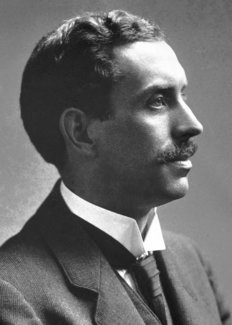Charles Glover Barkla
Biographical

Charles Glover Barkla was born on June 7, 1877 at Widnes, Lancashire, England, where his father, J.M. Barkla, was Secretary to the Atlas Chemical Company. He was educated at the Liverpool Institute and entered University College, Liverpool, in 1894 to study mathematics and physics, the latter under Oliver Lodge. He graduated with First Class Honours in Physics in 1898 and in the following year he obtained his master’s degree. Also in 1899, he was awarded a research scholarship by the Royal Commissioners for the Exhibition of 1851 and he proceeded to Trinity College, Cambridge, to work in the Cavendish Laboratory with J. J. Thomson. He migrated to King’s College during 1900 and in 1902 returned to Liverpool as Oliver Lodge Fellow. From 1905 to 1909 he was successively demonstrator, assistant lecturer in physics and special lecturer in advanced electricity at the University, and in 1909 he succeeded H. A. Wilson as Wheatstone Professor of Physics in the University of London. In 1913, Barkla accepted the Chair in Natural Philosophy in the University of Edinburgh and he held this position until his death.
Barkla’s first researches concerned the velocity of electric waves along wires but in 1902 he commenced his investigations on Röntgen radiation which were to occupy almost his whole life. His discovery of homogeneous radiations characteristic of the elements showed that these elements had their characteristic line spectra in X-ray and he was the first to show that secondary emission is of two kinds, one consisting of X-rays scattered unchanged, and the other a fluorescent radiation peculiar to the particular substance. He discovered the polarisation of X-rays, an experimental result of considerable importance for it meant that X-radiation could be regarded as similar to ordinary light. Barkla made valuable contributions to present knowledge on the absorption and photographic action of X-rays and his later work demonstrated the relation between the characteristic X-radiation and the corpuscular radiation accompanying it. He has also shown both the applicability and the limitation of the quantum theory in relation to Röntgen radiation. The results of his findings are recorded in various papers which have appeared mainly in the Transactions and Proceedings of the Royal Society. He had a considerable reputation as an examiner in physics.
Barkla, a Fellow of the Royal Society, had several honorary degrees. He was appointed Bakerian Lecturer (Royal Society) in 1916 and he was awarded the Hughes Medal in the following year.
Charles Glover Barkla married Mary Esther, the eldest daughter of John T. Cowell of Douglas, Receiver-General of the Isle of Man, in 1907. They had two sons and one daughter. Their youngest son, Flight Lieutenant Michael Barkla, a brilliant scholar, was killed in action in 1943. Barkla’s chief recreation was singing – he had a powerful baritone voice and he was a member of the King’s College Chapel Choir, 1901-1902. Latterly, he had also become fond of golf.
Barkla died at his home, Braidwood, Edinburgh, on October 23, 1944.
This autobiography/biography was written at the time of the award and first published in the book series Les Prix Nobel. It was later edited and republished in Nobel Lectures. To cite this document, always state the source as shown above.
The Nobel Foundation's copyright has expired.Nobel Prizes and laureates
Six prizes were awarded for achievements that have conferred the greatest benefit to humankind. The 14 laureates' work and discoveries range from quantum tunnelling to promoting democratic rights.
See them all presented here.
